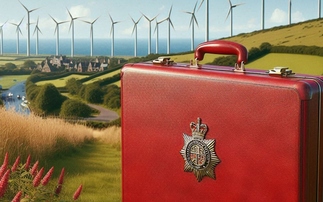The mayor of London has now lent his public support for the Warm Homes Amendment to the Energy Bill, following my lobbying. This follows his behind-the-scenes lobbying and a letter from the London Assembly sent to London MPs.
As the mayor notes in his answer to me, it's important that the Energy Bill requires the government to publish a strategy to meet carbon-reduction targets by retrofitting homes and businesses. But without a clear strategy that can convincingly show how the targets will be met, I fear we will spend another frustrating decade revealing what we could predict all along - that too few homes are reached and with inadequate retrofit measures under the Green Deal.
Londoners never got much out of the old Carbon Emission Reduction Target (CERT) scheme. Government figures show only one per cent of lofts and two per cent of cavity walls were insulated under the CERT scheme in the past two years - the lowest of any region in England.
London has lagged behind because 70 per cent of the city's homes are hard to treat, with solid walls that are expensive to insulate, roofs that are difficult to access, and large conservation areas and blocks of flats requiring landlords, leaseholders and freeholders to co-operate.
And London will continue to lag behind unless the Green Deal offers sufficient subsidy to meet the costs of retrofitting these more difficult homes, help for those suffering from fuel poverty, cheap finance on loan so the full costs aren't too high, and mechanisms for councils to overcome the complicated tenure mix in blocks of flats.
For Londoners stuck in cold private rented homes, the minimum energy efficiency standards for private rented homes must bite as early as possible, and we need to go much further than the rather poor 'E' rating by ratcheting the minimum standard up over time. Leaseholders also have to be able to vary their leases where energy and water efficiency is inadequate, requiring a simple change to the Landlord and Tenant Act 1987.
But to really hit London's climate change targets, the government needs to give councils a leading role.
The reason Kirklees regularly tops the insulation league table while London boroughs sit at the bottom is that Kirklees goes door to door, street by street, to drum up business. If we rely on Green Deal providers and their scattered marketing efforts, we will never meet London's demanding climate change targets.
Following an investigation I led in 2008, the London Assembly persuaded the mayor to adopt the Kirklees area-based approach. The London Development Agency has developed the RE:NEW programme to roll out energy and water efficiency measures street by street, led by local councils.
The mayor and the London Assembly are clear: the RE:NEW programme is the most effective way to get homes retrofitted, and the Green Deal providers should be required to work with councils rolling it out. With councils reeling from cuts and the mayor having next to no climate change budget left, it will be down to Green Deal providers to stump up the money for RE:NEW. Hopefully, they will think of it as an effective marketing campaign and so pay for it, but the Energy Bill should force their hand.
All this detail can be worked out in the remaining stages of the Energy Bill's passage through parliament. The Warm Homes Amendment and the campaign for private rented tenants have hit their target. Now Londoners need the Energy Bill to deliver a truly green deal.







